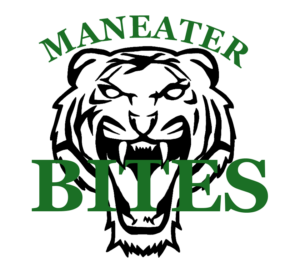March 15, 2014
MU alumnus Struby Struble, Ann Friedman and MU journalism professor Mary Kay Blakely have accomplished a lot in their lives.
Struble, the current LGBTQ Resource Center coordinator, taught English in Spain and competed in a semi-professional soccer team in San Francisco, Ca.
Friedman is a freelance writer who writes columns for New York Magazine and the Columbia Journalism Review, and designs infographics for The Hairpin and Los Angeles Magazine.
Blake had spent 30 years as a journalist — working for publications such as Ms. Magazine and the New York Times — before starting her teaching career at MU, where she has been a journalism professor for 17 years.
Despite all of their professional accomplishments, however, these women’s lives center around the fact that they are all proud feminists.
On March 13, the MU School of Journalism, along with Mizzou Advantage and the Women’s History Committee, co-sponsored “A Conversation with Feminist Leaders and Professional Innovators.” The panel featured Struble, Friedman and Blakely, who discussed contemporary feminist issues that are online, in the media, at work, and in everyday life.
The panel was part of a coalition of events leading up to the Women’s Leadership Conference on March 15. Blakely considered the event an effective tool in educating students about feminism and journalism in today’s society.
“I think what we wanted students to get out of this are questions that are being asked now: how do you be an effective journalist in today’s world … and how do we educate journalists about issues that they need to know,” Blakely said. “I remember being asked a long time ago is it more important to you that you’re a journalist and writer … or is it more important that you’re a feminist, and I said they’re inseparable.”
Friedman, a resident of Los Angeles, came back to her alma mater to not only speak about feminism at the panel, but also to speak to journalism classes and at the Women’s Leadership Conference on Saturday. She said her feminist beliefs continue to play a role in her professional and personal life.
“(Feminism) affects how I come up with story ideas and my column ideas,” she said. “I write lots of articles for The Cut, which is the women’s section of New York Magazine, so almost everything I write about has a gender or relationships angle and my feminist beliefs play into that.”
Throughout the panel, Friedman discussed feminists as professional workers and stereotypes brought upon women by the media and everyday society. Although she was a feminist before the panel, sophomore Stephanie Sierra found that the discussion enhanced her perception of women and society.
“I really enjoyed how it was conversational, and I think it was really neat that all the speakers had different stories to tell,” Sierra said. “They really taught a lot of valuable lessons and it depicted women in society and in the workplace and in their life … so it widened my (perspective) realizing that feminism is in every part of life.”
Although the discussion mainly focused on journalism and feminism, the intersectionality of feminism and other prejudices against different races and the LGBTQ community and what can be done to stop it proved to be a recurring theme.
“I really think that whenever we can eliminate a huge prejudice against a targeted group of people, whether they’re gay, whether they’re women, whether they’re black or Asian or whatever they are — if we can address the root cause of this prejudice and what people have to know to move beyond it, (we can fix it),” Blakely said. “I’ll always be passionate about that.”


Comments
The Maneater has the right to remove comments that do not comply with policies surrounding hate speech.